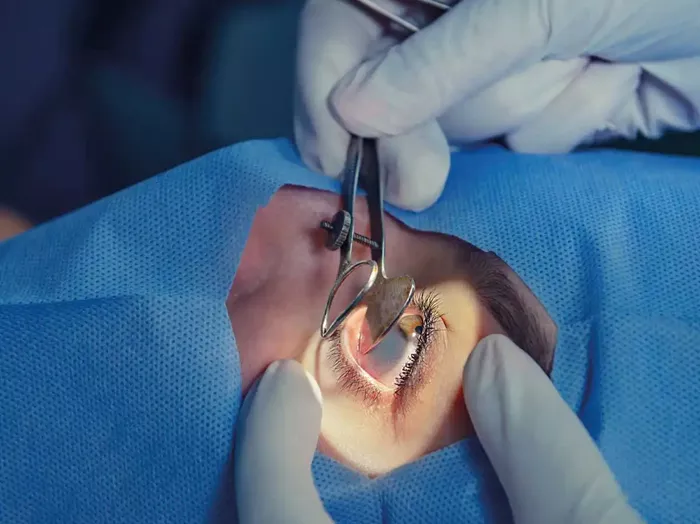Laser eye surgery is a popular and effective procedure for correcting vision problems such as myopia, hyperopia, and astigmatism. While the surgery itself is quick and relatively painless, the post-operative care is crucial to ensure optimal healing and the best possible outcome. Here are seven essential things to remember after undergoing laser eye surgery.
1. Follow Your Doctor’s Instructions Carefully
Post-Operative Medications
Your ophthalmologist will prescribe medications to help with the healing process. These may include antibiotic eye drops to prevent infection and anti-inflammatory drops to reduce swelling and discomfort. It is essential to use these medications exactly as directed.
Activity Restrictions
Immediately after surgery, your doctor will advise you to avoid certain activities that could strain your eyes. This may include heavy lifting, strenuous exercise, and activities that might expose your eyes to dust or contaminants. Following these restrictions can prevent complications and promote faster healing.
2. Attend All Follow-Up Appointments
Initial Follow-Up
Your first follow-up appointment is usually scheduled within 24 to 48 hours after surgery. During this visit, your doctor will check your eyes to ensure they are healing properly and that there are no signs of complications such as infection or excessive inflammation.
Ongoing Monitoring
Subsequent follow-up appointments will be scheduled over the next few weeks and months. These visits are critical for monitoring your progress and addressing any concerns you might have. Skipping these appointments can result in undetected issues that could affect your vision.
See Also: 6 Best Eye Surgeries For Treating Astigmatism
3. Protect Your Eyes
Avoid Rubbing Your Eyes
After laser eye surgery, your eyes will be more sensitive. Rubbing them can dislodge the corneal flap created during the procedure, leading to complications. If your eyes feel itchy or uncomfortable, use the prescribed lubricating drops instead of rubbing.
Wear Protective Eyewear
Your doctor will recommend wearing protective eyewear, especially during the initial recovery period. This includes wearing sunglasses outdoors to shield your eyes from harmful UV rays and wearing protective goggles while sleeping to prevent accidental rubbing.
4. Manage Dry Eye Symptoms
Use Lubricating Drops
Dry eye is a common side effect of laser eye surgery. Your doctor will likely prescribe lubricating eye drops to alleviate dryness and discomfort. Use these drops as directed, even if you don’t feel dry eye symptoms, to keep your eyes moist and comfortable.
Stay Hydrated
Drinking plenty of water can help maintain overall eye hydration. Staying well-hydrated is important for the recovery process and can reduce the severity of dry eye symptoms.
5. Avoid Certain Environments and Activities
Stay Away from Dusty or Smoky Areas
Environments with dust, smoke, or strong fumes can irritate your eyes and increase the risk of infection. Try to avoid such places, especially in the first few weeks after surgery.
Limit Screen Time
Staring at screens for extended periods can strain your eyes and exacerbate dryness. Take regular breaks using the 20-20-20 rule: every 20 minutes, look at something 20 feet away for at least 20 seconds.
6. Be Aware of Vision Fluctuations
Normal Fluctuations
It’s normal to experience fluctuations in your vision during the first few weeks after surgery. Your eyes are healing, and it may take some time for your vision to stabilize. Be patient and give your eyes the time they need to adjust.
Report Persistent Issues
While some fluctuation is normal, persistent or severe changes in vision should be reported to your doctor immediately. This could indicate a complication that needs prompt attention.
7. Maintain a Healthy Lifestyle
Eat a Balanced Diet
A diet rich in vitamins and minerals supports overall eye health. Foods high in omega-3 fatty acids, antioxidants, and vitamins A, C, and E can promote healing and maintain eye health. Incorporate plenty of leafy greens, fish, nuts, and citrus fruits into your meals.
Avoid Smoking and Limit Alcohol
Smoking can impair the healing process and increase the risk of complications. Similarly, excessive alcohol consumption can dehydrate your body and affect your recovery. Avoid smoking and limit alcohol intake to promote optimal healing.
Following these seven guidelines after laser eye surgery can significantly enhance your recovery and ensure the best possible outcome. Remember that every patient’s experience is unique, so always consult your ophthalmologist with any concerns or questions during your recovery process.
Conclusion
Laser eye surgery is a life-changing procedure that can provide you with clearer vision and reduce your dependence on corrective lenses. By adhering to your doctor’s instructions, attending follow-up appointments, protecting your eyes, managing dry eye symptoms, avoiding certain environments, being aware of vision fluctuations, and maintaining a healthy lifestyle, you can ensure a smooth recovery and enjoy the full benefits of your surgery. Your commitment to these post-operative care measures is essential for achieving the best results and maintaining your eye health in the long term.
Related topics:

